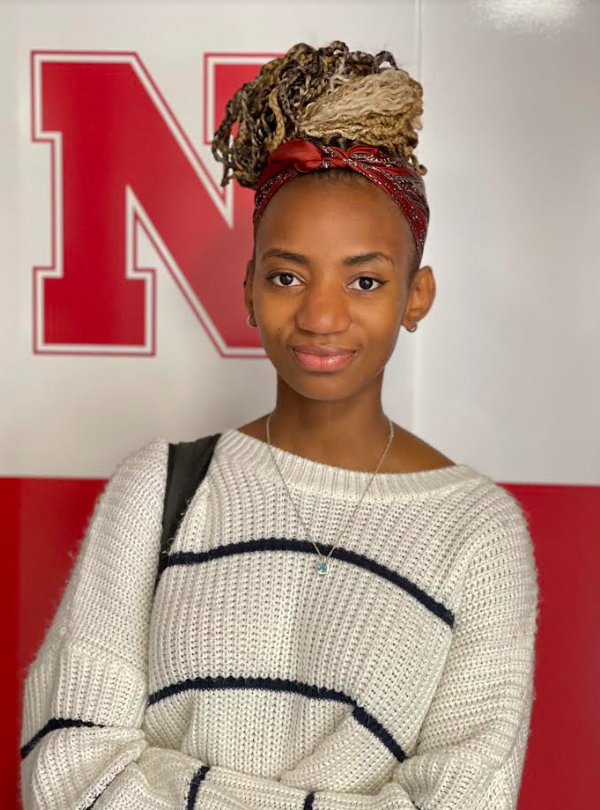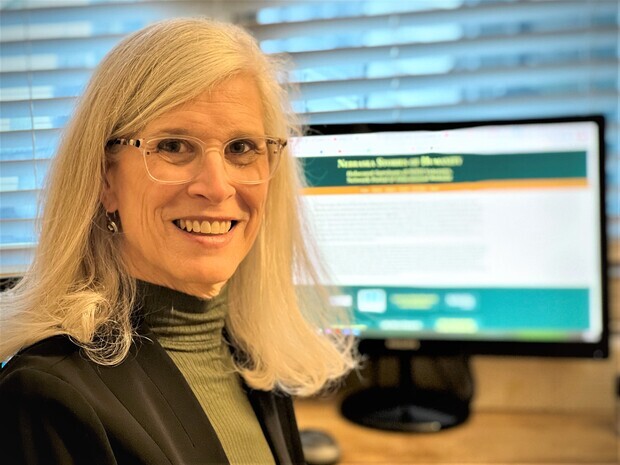This is a series highlighting undergraduate and graduate students who are participating in the Student Research Days poster sessions April 11-12.

Undergraduate: Aline Abayo
Major: senior in integrated science with a concentration in agricultural economics and statistics
Project: econometrics of the coffee industry for farmers
Aline Abayo believes one solution to lagging coffee profits for African producers may be focusing on selling more of their product within the continent.
Abayo, a senior majoring in integrated science with a concentration in agricultural economics and statistics, studied the econometrics of the coffee industry for farmers in Ethiopia, Kenya, Uganda, Rwanda, Cameroon, Madagascar, Cote d’Ivoire and Tanzania. She gathered data from coffee production for these significant suppliers from 1990 to 2019.
“Some farmers reported they’re not having much profits even though the industry doing very well,” she said. “It didn’t ring well with me. I was wondering why that was happening.”
Among her findings: Prices paid to growers roughly track with growth of the United States’ gross national product since the U.S. is among the biggest coffee consumers in the world. However, data shows that climate change will negatively affect coffee growers, both in terms of prices and their production costs. Growers should focus on varieties that are less susceptible to climate change, she suggested
Abayo believes African policy makers should focus on regional trade agreements that would allow the continent’s growers to grab more of the coffee market there. “In addition, RTAs would allow African coffee producers to share technology, invest in regional research enhancement, gain a competitive advantage and also have a significant collective impact in the global coffee market.
“Moreover, we recommend policy makers facilitate and inspire quality enhancement and differentiation in the coffee industry. This would allow African coffee farmers to meet the current need for specialty coffee in United States and European Union.”

Graduate: Beth Dotan
Major: doctoral student in Teaching, Learning and Teacher Education
Project: Nebraska Stories of Humanity: Holocaust Survivors and WWII Veterans
The first phase of the digital humanities archive, “Nebraska Stories of Humanity: Holocaust Survivors and WWII Veterans,” is scheduled to go online later this month, but that’s just a beginning, says its coordinator, Beth Dotan.
Dotan, a doctoral student in Teaching, Learning and Teacher Education, has worked in the Holocaust education field for many years, including at the Ghetto Fighters’ House Museum in Israel and as founding director of the Institute for Holocaust Education in Omaha.
The UNL project aims to highlight survivors and liberators as part of the fabric of Nebraska’s communities and the state’s story. As members of that generation disappear, their families are eager to share their stories, said Dotan, who is presenting this work with Aila Ganić, a UCARE student.
“I began to contemplate how can we tell these stories in an active way that provides critical thinking skills?” she said.
The initial iteration of the project includes five Nebraskans and their stories – close to 1,000 individual items, including some 250 letters from a vet who was a liberator at Dachau. It will be a trove for the public, including educators looking for a way to teach this history to their students.
From this beginning, “we can seek additional funding and more stories from Nebraskans,” Dotan said. And more Nebraskans will discover their own connections to the Holocaust.
“That’s the beauty of using these digital tools. Suddenly, you can search for these things that connect to you personally.”






